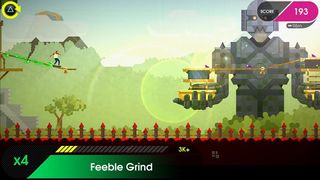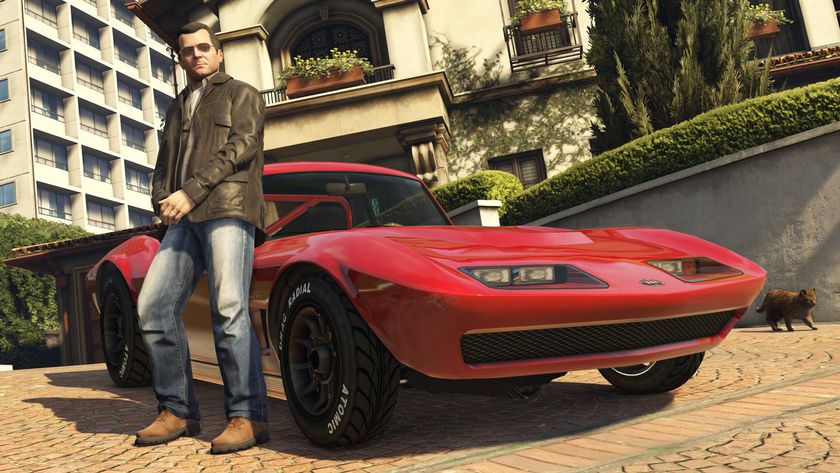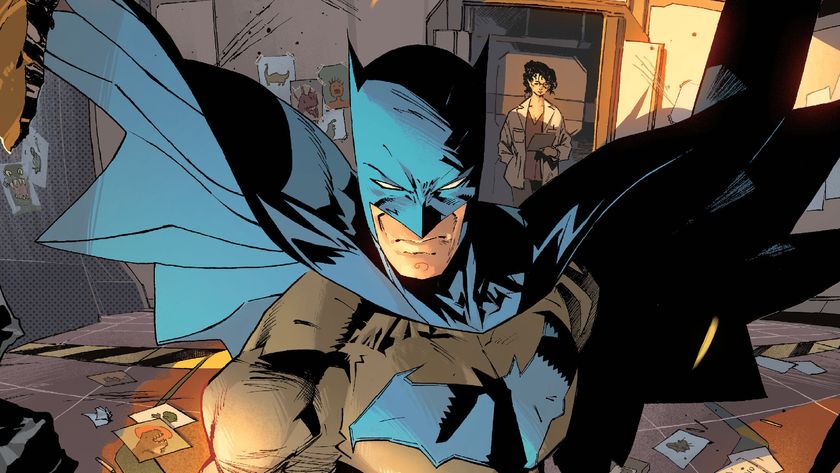The drug-like power of music in demanding games
I have a confession to make: I'm personally addicted to OlliOlli 2. It's not perfect, but I love the way it boils the gameplay of Tony Hawk's Pro Skater down to its purest form: comboing rad tricks together in the endless pursuit of bigger point values. I revere its 2D level designs, both for their fantastical film set themes and the way they let you calibrate your own challenge, giving you an implicit choice to divide each demanding obstacle course into manageable chunks or to string it all together in one sick-nasty line. But above all, I treasure OlliOlli 2's soundtrack, for it has the power to completely subdue any rage I might feel when faceplanting into the virtual asphalt.
Spare me two extra minutes of your time and watch the above trailer, if you would. Now, I've never snorted cocaine before, but I imagine it provides the same high that I get every time that song comes on during a marathon skate session. When the drums kick in, a wave of endorphins bursts forth in my brain, washing over all the cracks and crevices in my gray matter to make everything feel right with the world. If I'm succeeding in the game at that moment, I feel elation. If I've just failed for the 30th attempt in a row, I feel at peace, with a Zen-like focus and an immunity to aggravation.
Music is one of the most powerful forces in this world, and if you can't appreciate it, you must be deaf, dead, or suffer from musical anhedonia (my condolences if any of those apply). And while there have been studies upon studies elucidating all the positive effects that music has on stress and pain, some masterfully crafted games instantly produce the kind of results that would take a crack team of scientists six months and a research grant. When you're wrestling with a blisteringly difficult stage, a moving soundtrack can soothe any savage, infuriated beast within, averting those moments when you rage-quit by hurling your controller into a nearby wall.

The OlliOlli games can be ludicrously punishing when you're first learning to push off the pavement. Flicking the analog stick to bust out the tricks you want takes some getting used to, and the strict timing of nailing perfect landings will only be mastered after hundreds of pitiful wipeouts. But when I botch a revert-manual at the end of a level-long combo, squandering millions of points in the process, I don't wince or howl in frustration - I laugh, and simply try again. The soundtrack's groovy electronica acts like a euphonious, reassuring metronome, spurring me to get over my stumblings right when they happen and return to the steady pace of my attempts to top the leaderboards.
It's likely the same reason why Dustforce holds such a special place in my heart, or why Hotline Miami has the cult following that it does. I wasn't cognizant of it at the time, but it was definitely David Wise's incredible Donkey Kong Country 2 score that got me through the most devilishly difficult sections of that game as a kid. Listening to the ethereal melodies and pulsing rhythms of these soundtracks induces a kind of trance, making you blind to what's actually happening: perpetual failure, where you're attempting the same bits of level over and over and over and over again. These stages are designed in a way where you can't possibly perfect them on your first - or possibly 50th - try, which would be maddening under normal circumstances. But when your neurotransmitters explode with dopamine in response to the music, the pain inherent to incessant repetition just melts away.
Funnily enough, there's often a huge disconnect between the demands of the gameplay and the hypnotizing sounds being pumped into your ears. When playing OlliOlli, or Dustforce, or Hotline Miami, your fingers are flicking, holding, and tapping like they're moving in time to DDR's Max 300. But your brain chooses to take the focus off of your ever-straining digits and surrender itself to the sounds of a plinking spacebeat, or a divine forest, or a thumping nightclub. Cotton Alley, the final world and ultimate challenge in Super Meat Boy, is engineered to make you question your sanity and contemplate death - but the accompanying music is just so light and happy that it's (almost) impossible to feel mad.
Of course, music isn't the sole factor in tempering hardcore difficulty to just the right curve of stress and satisfaction. Tight controls, instant retries, focused level layouts, and minimal penalties for failure are key, as Super Meat Boy so perfectly encapsulates. But impeccable soundtracks play a huge part in diminishing the agony of dying to the same jump for the umpteenth time, and heighten the glory when you finally achieve your goal. To me, music is what makes or breaks a challenging game, because I'm not about to devote my time and efforts to something I don't care to hear. And with that, I'm gonna go back to daydreaming about playing OlliOlli 2 when I get home tonight.
Sign up to the 12DOVE Newsletter
Weekly digests, tales from the communities you love, and more
Lucas Sullivan is the former US Managing Editor of 12DOVE. Lucas spent seven years working for GR, starting as an Associate Editor in 2012 before climbing the ranks. He left us in 2019 to pursue a career path on the other side of the fence, joining 2K Games as a Global Content Manager. Lucas doesn't get to write about games like Borderlands and Mafia anymore, but he does get to help make and market them.
Most Popular








